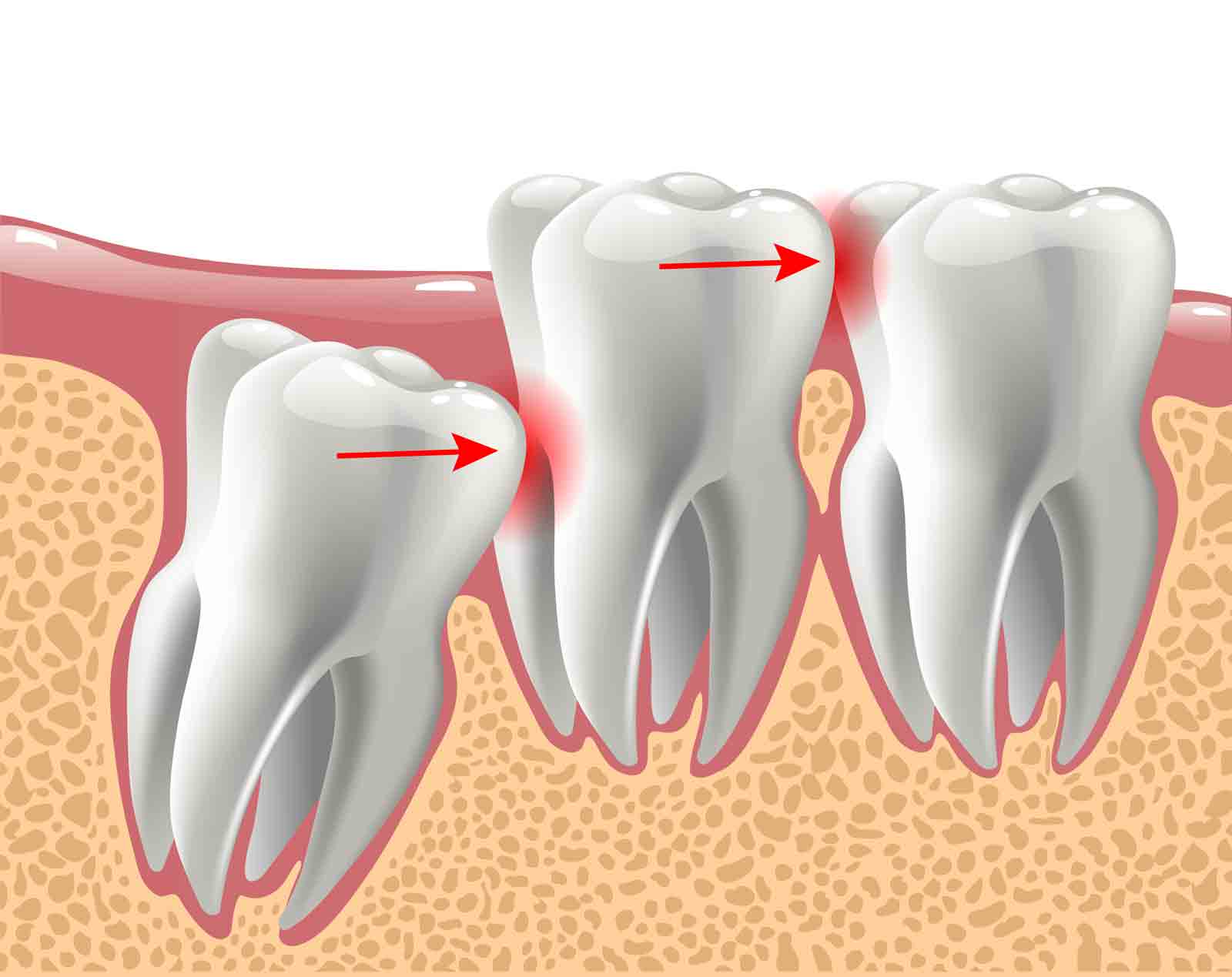Table of Contents
The growth of wisdom teeth, or third molars, is a natural part of dental development. However, it can occasionally lead to certain complications. One question that frequently gets asked by patients is, “Do wisdom teeth cause crowding?” To answer this question, let’s delve into the topic and understand it to the details.
Unravelling The Mystery Of Wisdom Teeth
Firstly, we need to understand what we’re dealing with. Wisdom teeth or third molars as they’re scientifically known, are typically the last teeth to make an appearance. But why do they even exist in the first place?
- From a historical perspective, our ancestors had a more challenging diet than us, requiring additional molars for efficient grinding of food.
- Today, in the era of softer foods, these teeth are essentially remnants of an era gone by. They often don’t serve a functional purpose and can even cause complications.
Wisdom Teeth And Crowding – Myth Or Fact?
With our wisdom teeth being somewhat redundant in the modern world, it’s perhaps easy to point the finger at them when dental issues arise, such as teeth crowding. However, is there any scientific basis for this claim?
Studies suggest that the widely accepted notion of wisdom teeth leading to crowding might not be entirely accurate. Here are a few points to consider:
- The amount of force that wisdom teeth can exert often isn’t powerful enough to cause the significant movement needed for crowding.
- Dental crowding has been observed in individuals who have never developed wisdom teeth, and in those where wisdom teeth were removed at an early age.
The Real Causes Of Crowding
So, if wisdom teeth aren’t primarily responsible for crowding, what is? Crowding is a complex issue, often resulting from a combination of factors:
- Natural growth and ageing: As we journey from childhood to adulthood, our body undergoes numerous transformations – our teeth and jaws included. With age, our jaws can change shape, which can, in turn, influence the positioning of our teeth.
- Tooth and jaw size discrepancy: If you have large teeth or a small jaw, this size mismatch could lead to crowding.
- Childhood habits: Habits such as thumb sucking, tongue thrusting or prolonged use of a bottle during early childhood can have a lasting impact on the development of your teeth and jaw. These actions can put pressure on the teeth, potentially altering their natural positioning.
Maintaining Oral Health Amidst The Uncertainties
Although wisdom teeth might not be the leading cause of crowding, they can undoubtedly create other challenges like impaction, gum disease or tooth decay, especially if your mouth doesn’t have sufficient room for them.
That’s where the importance of regular dental check-ups comes into play. Routine visits to the dentist can lead to early detection and timely intervention of potential issues. After all, as the saying goes, prevention is always better than cure!
Your Dental Health Matters
Unravelled some dental myths today? If you’re keen to explore more about your oral health or have any dental concerns, reach out to us at Dental Haus. We’re here to guide you towards a healthier, brighter smile. It’s your time to shine, so book an appointment with us now!













